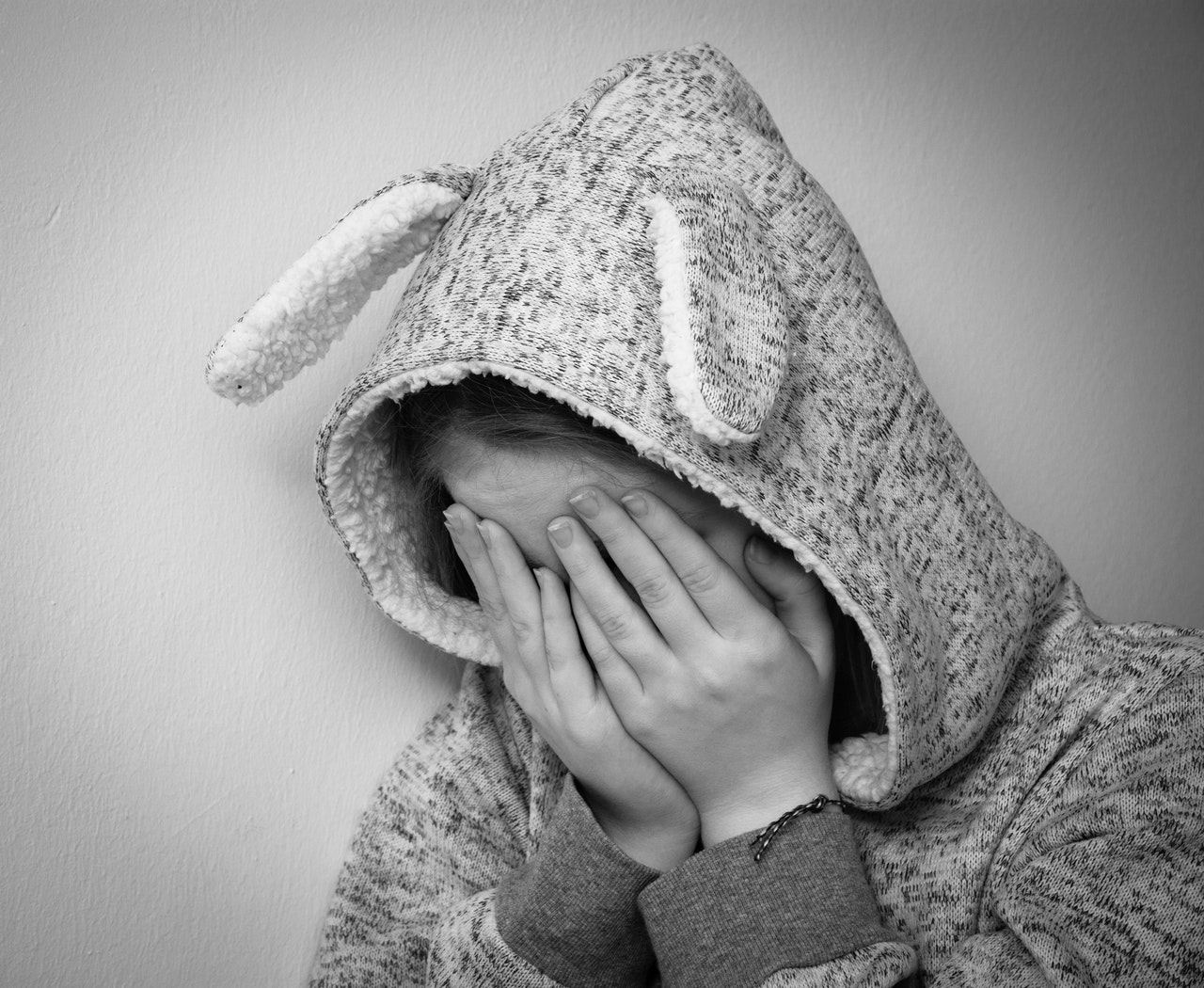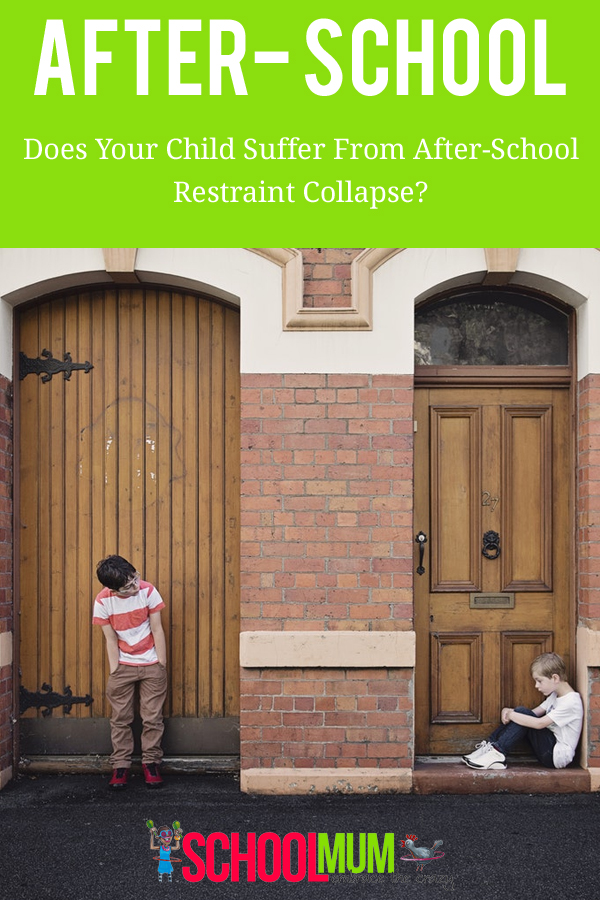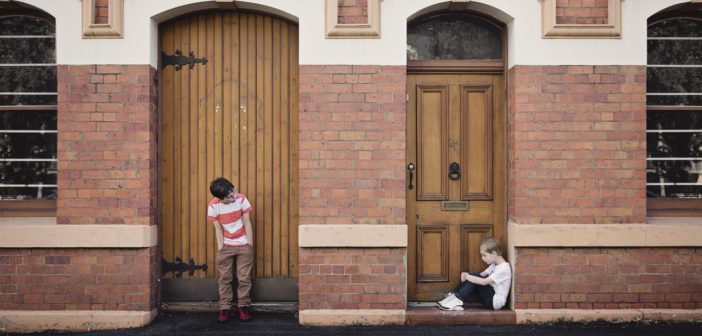Some kids are more susceptible to after-school restraint collapse than others.
I sat in the classroom facing the teacher, anticipating the worst.
Lately at home Mr 9’s behaviour had been a challenge, to say the very least. Even though I hadn’t heard any bad reports from the school, I wasn’t expecting what came out of his teacher’s mouth next.
“He is doing so well, behaviourally and with his schoolwork.”
After I had explained my concerns she said, “He always gives 110% here, I’m not surprised he falls in a heap when he gets home.”
On reflection, this has always been his pattern. He manages to hold it together for the school day, then all of that restraint melts away once he gets home – his safe place.
He reacts in a number of ways, either with hyperactivity, emotional meltdowns or, as his teacher put it, falling in a heap and completely zoning out. It’s called after-school restraint collapse, and after reading this article I was interested to learn this is quite common.

After-school restraint collapse
The phenomenon of after-school restraint collapse is typical for younger children, or those who are particularly sensitive or intense in nature. It is also common at the beginning of the school year, when kids are adjusting to new environments, social dynamics and general change.
When you consider all the work a child has to put in during a school day – meeting expectations, sitting still, paying attention, applying learning and navigating social interactions with their peers – it is understandable they come home overstimulated, or just plain exhausted. Plus, particularly for the younger ones, they haven’t had their mum or dad there to reassure them and make them feel safe. There are a lot of emotions for a young mind to deal with!
After all, when adults walk in the door after a hard day we are often irritable, tired or just feel the need to wind down. It’s not surprising our kids feel the same.

Helping kids manage
So how can we help them and manage the fall out from after-school restraint collapse?
- Give your child space after school to wind down. Getting straight onto them about homework if they suffer from after-school restraint collapse is not going achieve much. Don’t hit them with 100 questions about their day either.
- Give your child lots of love and reassurance. Even if they aren’t being particularly nice. Try not to take their emotional outbursts personally. Lots of hugs and connection may help to calm them.
- Fill their tummies. Apart from their brain, their other engines are probably running on low as well. A healthy afternoon tea can go a long way for improving everyone’s mood.
- Find their outlet. Depending on how they decompress after school, find something that releases their energy or conversely, lets them have some quiet space. Sometimes my son needs to jump on the trampoline or zoom around the skate part for a while. Other times, he just needs to chill out in front of the telly. Every child is different.
The thing to remember about after-school restraint collapse is that it is a temporary state – a transition period between school and home. Some days this might be quicker than others, so keep your expectations realistic.
Once your child feels safe and regroups, they will be back to being themselves.

